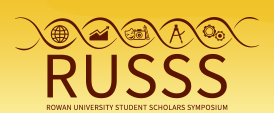Date of Presentation
4-25-2019 5:00 PM
College
College of Science & Mathematics
Faculty Sponsor(s)
Eve Sledjeski
Poster Abstract
The purpose of this study is to assess possible predictors of stimulant use in college students. We define stimulant use as the consumption of caffeine or nicotine in any form. Researchers anticipate that stimulant use will be positively associated with procrastination, academic stress, and parental pressures. The current study uses a cross-sectional design. Participants responded to recruitment via SONA for Essentials of Psychology credit or social media posts by student researchers. Participants completed self-report questionnaires assessing various kinds of caffeine and nicotine (cigarettes, e-cigarettes, JUULs). We also asked about procrastination habits surrounding schoolwork using Lay’s Procrastination Scale. To assess academic stress, we administered the Academic Expectations Stress Inventory, a 9-item scale that asks about feelings and stress surrounding academic performance. Lastly, participants were asked about the parental pressures they feel to succeed academically using the Inventory of Parental Influence. Using Latent Class Analysis (LCA) we will explore the presence of latent classes that will differ based on combinations of characteristics including the proposed predictors and licit stimulant use. LCA will be conducted in R using the poLCA package. Academic stress, parental pressure, procrastination, caffeine use, and nicotine use will be included as variables in the model. LCA provides two parameters: the prevalence of each class in the sample and the probability that an individual in a certain class will endorse a certain item or behavior. In order to determine significance, bootstrapping procedures are conducted to calculated point estimates and 95% confidence intervals for the LCA models. Results will be discussed.
Student Keywords
psychology, JUUL, Licit Stimulant Use, Undergraduate Students
Disciplines
Psychology
Document Type
Poster
Included in
Do you JUUL? Predictors of Licit Stimulant Use in Undergraduate Students
The purpose of this study is to assess possible predictors of stimulant use in college students. We define stimulant use as the consumption of caffeine or nicotine in any form. Researchers anticipate that stimulant use will be positively associated with procrastination, academic stress, and parental pressures. The current study uses a cross-sectional design. Participants responded to recruitment via SONA for Essentials of Psychology credit or social media posts by student researchers. Participants completed self-report questionnaires assessing various kinds of caffeine and nicotine (cigarettes, e-cigarettes, JUULs). We also asked about procrastination habits surrounding schoolwork using Lay’s Procrastination Scale. To assess academic stress, we administered the Academic Expectations Stress Inventory, a 9-item scale that asks about feelings and stress surrounding academic performance. Lastly, participants were asked about the parental pressures they feel to succeed academically using the Inventory of Parental Influence. Using Latent Class Analysis (LCA) we will explore the presence of latent classes that will differ based on combinations of characteristics including the proposed predictors and licit stimulant use. LCA will be conducted in R using the poLCA package. Academic stress, parental pressure, procrastination, caffeine use, and nicotine use will be included as variables in the model. LCA provides two parameters: the prevalence of each class in the sample and the probability that an individual in a certain class will endorse a certain item or behavior. In order to determine significance, bootstrapping procedures are conducted to calculated point estimates and 95% confidence intervals for the LCA models. Results will be discussed.

